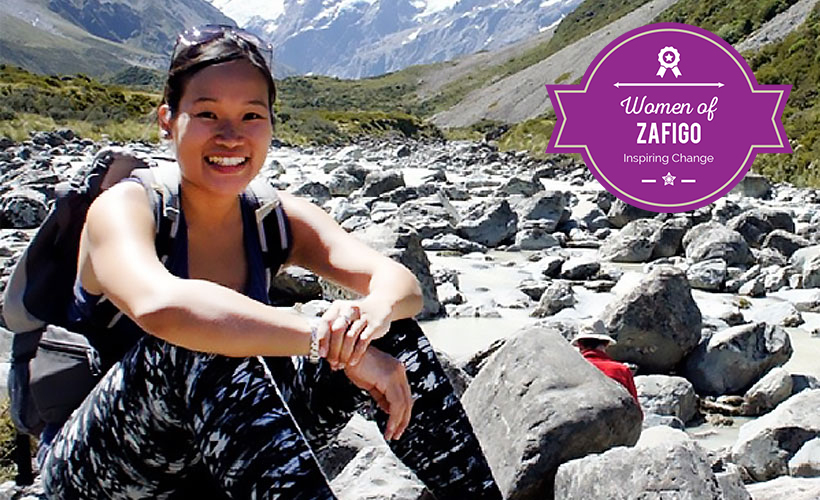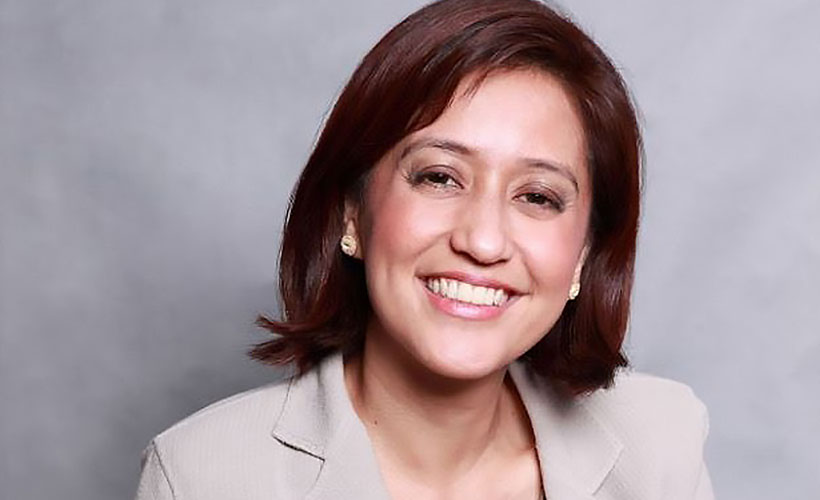“We don’t get a day off. But I don’t feel that it’s work because we’re doing it as a family, it’s actually a blessing,” Deborah Chan says of her work and unconventional lifestyle. The Petaling Jaya native first left her job and city life for the quiet town of Battambang in Cambodia, raising funds to build literacy centres. After two years, she returned to Malaysia and headed east – to Sabah, where she now splits her time between the capital, Kota Kinabalu, and the northern interiors.
According to a World Bank report, this tip of Borneo is home to 40% of the poorest Malaysians. Mostly farmers, some of them eke out a living on a meagre RM1 a day. That is where Deborah spends half her time each week, driving about three hours from the city to reach villages in Kota Marudu, Pitas, and Kudat. She’s not doing it alone but with her husband Terence Ooi and their two young children, Seth and Enya, who are four and one and a half, respectively.
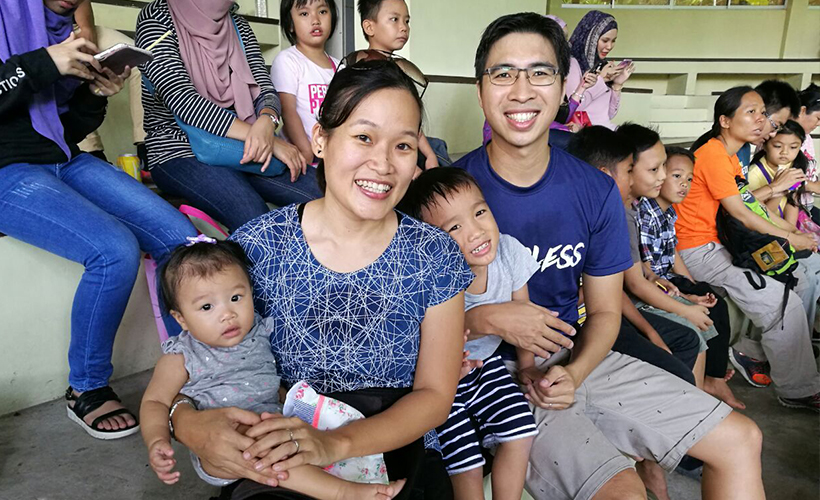
the local chapter of a global non-profit that aims to elevate, educate, and empower local communities. In the remote jungles of Sabah, they focus on building hostels near schools, to provide students with easy access to education. “The dropout rate used to be very high,” Deborah explains, “because the schools are far from their homes and not easy to get to. Many of the parents also don’t see value in education; they’d rather their children work at their farms. I’ve had students only starting school at the age of 9; while I’m teaching my four-year-old to read, I’m also teaching those students the ABCs.”
The contrast is as striking as the change of pace and lifestyle has been for Deborah and her family. In the villages, WiFi is non-existent and data is intermittent. They, too, sleep in the hostels and shower with cold water, like the students. Meals always consist of rice, fried fish, and stir-fried vegetables. Simple, plain and often quite bland. But that’s the kind of staple food the village children are used to. “Once, some volunteers thought they’d give the kids a treat by preparing pasta with chicken and tomato sauce. The kids didn’t know what to make of it!”
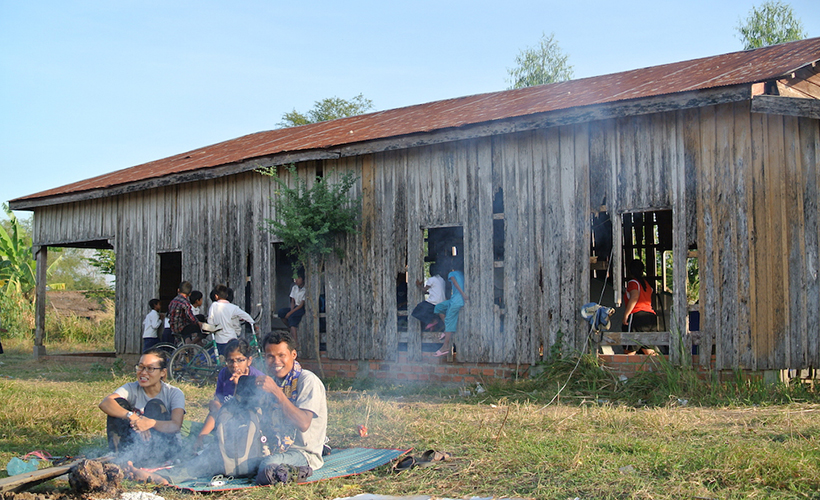
ILiving off the grid is not an entirely new experience for Deborah, who has been participating in voluntary and missionary trips since her teens. Her first experience was in Chiang Rai, Thailand, where she was part of a 30-strong group that built a church with bamboo and dirt, using their bare hands. She was also in post-tsunami Aceh for several months as part of a disaster relief programme for children and mothers.
n 2009, she and Terence visited Battambang to run a free medical clinic in a rural village and returned every year after that to conduct different outreach initiatives. Terence first mooted the idea of relocating to Cambodia so that they could do more on the ground but Deborah was hesitant at first; there were so many factors to consider and doubts to mull over. It was after yet another of their annual trips, in 2013 and with three-month-old Seth along for the ride, that Deborah began to seriously consider it. One Sunday morning during church service, the answer came loud and clear via a sermon on the miracle of Jesus multiplying five loaves of bread and two fishes to feed over 5,000 people.
Deborah and Terence gave themselves one year in Battambang but ended up staying for two. On paper, their commitment sounded very straightforward: Fundraising to build literacy centres. In reality, they had the momentous task of building communities.
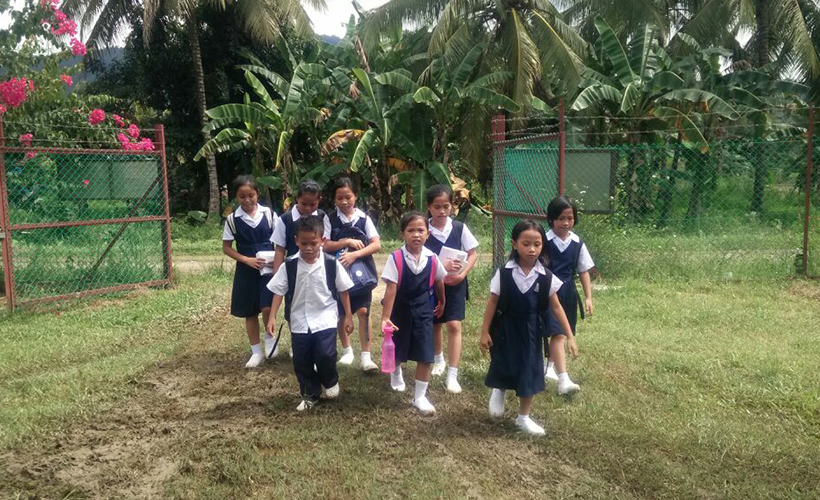
The centres served as education hubs on weekdays (and fellowship venues on weekends), drawing eager students who didn’t have any or much educational opportunities. They had no concept of rules or homework, and had to be taught things like punctuality and basic personal hygiene. They fitted each literacy centre with two modern toilets, something that’s foreign to the villagers. Deborah and Terence also trained up local teachers and paid their salaries.
After two years, the opportunity to do the same in Sabah arose. “The words that came to us was ‘nation building’,” Deborah shares. “We wanted to do something for Malaysia.”
Taking a leaf from their experience in Cambodia, the first thing they did was build relationships with the locals and get to know the dynamics of the rural communities. “We pushed our work aside at first to focus on translating our care into actions. We’d sit down for tea with them, let our children play together…we had to foster trust before anything else, and hear them out.”
Their work in Sabah is multi-prong: They run programmes that help with wholistic development such as character building and leadership, give career talks, and extend the education to the villagers too, teaching them to be financially savvy, for example. “They’re often cheated of their resources, so this is very important. Some of them have never even set foot in a bank.”
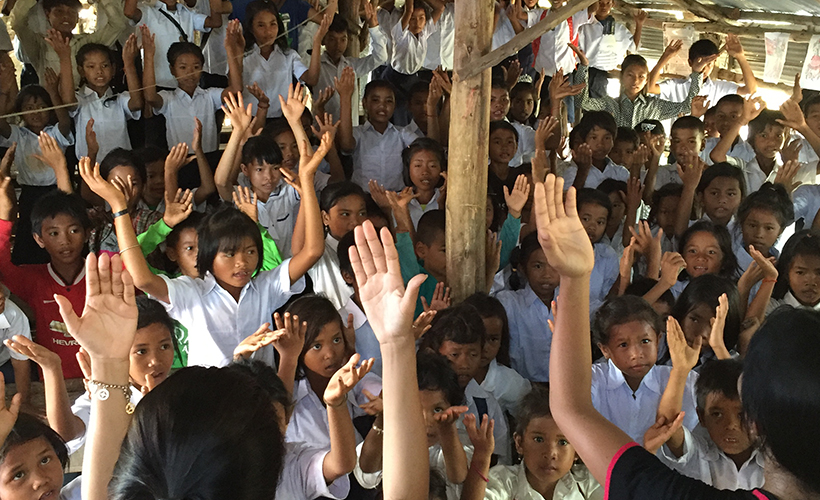
While all that is going on, the focus is on building and managing hostels. Each hostel can accommodate between 40-100 students, and is managed by one or two wardens (also known as house parents) who are locals. There’s one tutor to every hostel. Students have to pay a RM50 monthly fee for lodging and food. “Freebies are not valued, there is no commitment,” Deborah explains, “that’s why we charge a token fee.” Families who can’t pay in cash may barter with products from their farms, or their time and skills to help out at the hostel.
The actual cost of providing for each child is RM300 per month, and is open to sponsorship from the public. You can also sign up for STORM (Short Term Operation Relief Mission), a volunteer programme that Deborah and Terence introduced to bridge the gap between urban youth and the rural communities. “STORM is open to all, though we’ve mostly hosted international school students and young adults. It’s an opportunity to see a world beyond their usual lives,” Deborah explains.
Make no mistake – STORM is not a holiday but an experience that will throw you out of your comfort zone completely. Volunteers are required to spend at least two weeks (in Cambodia or Sabah), during which they will be assigned a variety of duties that may include teaching English, construction work, community clean-ups and visiting villages. They will also attend talks or classes on topics such as cross-cultural and rural communication and issues.
The itinerary is designed in such a way that people don’t go thinking that they’re there to give – they will take a lot with them too. Ideally, says Deborah, the volunteers leave as advocates. At the very least, they go home with one or two life lessons.
That applies to Deborah herself. “There’s been lots to learn, and it’s still a learning journey,” she says of the last four years. She’s learned to give her children the freedom to connect with nature, and enjoys watching them grow and come into their own. “Seth grew up as a kampung child. I’d be hanging out the laundry and when I turn around, he’d be grabbing a chicken!” she says with a laugh. On a practical note, “I’ve learned to pack better as we move around so much. A lot of things are nice to have but not necessary.”
Deborah has written a memoir detailing the pivotal moments in her life that led her to where she is today, titled Live To Last. For more information on Starfish Foundation Malaysia or to support what they do, go here. If you’re interested to be a STORM volunteer, find details here.
